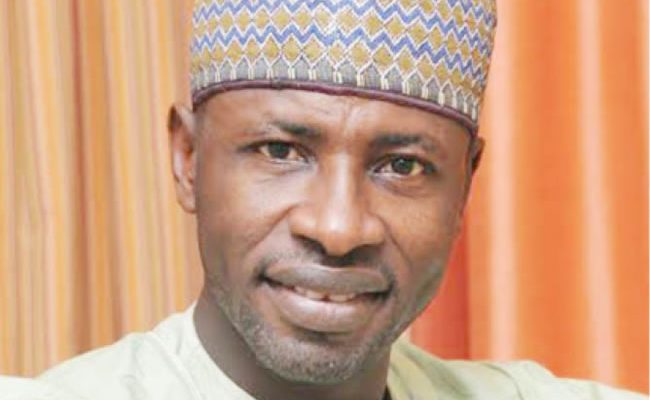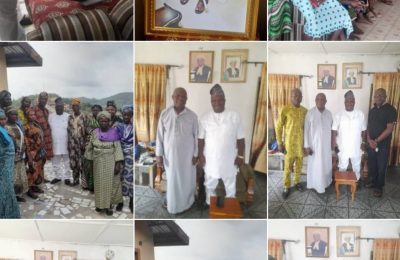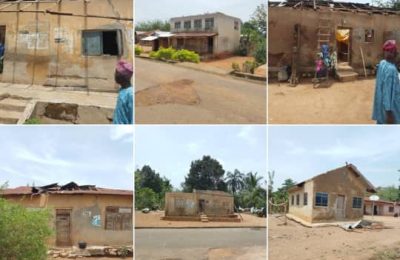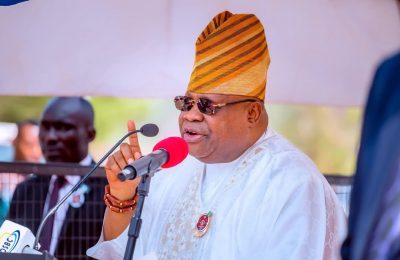
Chief spokesperson of the Labour Party Presidential Campaign Council (LP-PCC) and former National Chairman of National Conscience Party (NCP), Dr Yunusa Tanko, speaks with IMOLEAYO OYEDEYI on the latest coalition forged by no fewer than seven political parties in the country, among other issues.
A few days ago, about seven political parties, including the Peoples Democratic Party (PDP), New Nigeria Peoples Party (NNPP), Social Democratic Party (SDP), among others, formed a coalition to ‘strengthen democracy in the country’. But your party was not sighted among these parties. Why is that so?

Firstly, I am not aware that there is going to be any coalition, as nobody has contacted us to discuss the matter with us. But what we know is that we are on talking terms with two other political parties, one of which is the NNPP being led by Rabiu Musa Kwankwaso. We also had a discussion with the presidential candidate of the PDP, Alhaji Atiku Abubakar, which is still a work in progress. But I don’t know of this particular seven-party coalition. We were not invited, and I don’t know whether our national chairman [has knowledge] of this particular matter. But as far as I am concerned, we are not aware of the coalition.
But you will agree with me that this won’t be the first time that a group of political parties will be coming together to form a coalition. In the build-up to the 2019 presidential elections, the PDP and about 38 other political parties formed a stronger coalition. But why hasn’t it been easy for a coalition to wrest power from a ruling party in the country?
Well, certain coalitions have been formed in the past. I was a part of the coalition you just mentioned. We called it ‘The CUPP Alliance’. But it was an alliance that was not consummated and perfected at the end. That was one of the problems we faced then. There was a particular issue as regards who would become the presidential candidate of the coalition and the processes and agreement as to how the coalition was to be established. Those were some of the impediments that sprang up during the last coalition. You see, an alliance comes as a necessity. This is because individual political party may not want to subsume their identity and this often causes a lot of problems in the process of having a strong alliance. But if there is a common interest to fight for the interests of the people, the alliance will simply work perfectly well. So alliances can work. But some people do say a merger is the more appropriate option. But if you start a coalition earlier enough and there is a good understanding by the parties involved, it can take you to the Promised Land. You will recall that a merger once occurred when the All Nigeria People’s Party (ANPP), the Congress for Progressive Change (CPC), and others formed the APC. And subsequently, the same thing may still happen or may not perhaps because of the candidates’ interests. But as the case may be, if we can come to an understanding that we need to wrest power from those who have perpetually put us in abject poverty, then it is possible to have a merger.
Recently, the Nigerian judiciary has been heavily criticised as many people claimed the judicial institution has been infiltrated and bought over by the executive, which they said has affected the direction of the several electoral petitions the Nigerian judges have heard. What is your take on this?
Honestly, this is a fact that has reared its head in an ugly manner, due to some of the inconsistencies that have been seen so far in the various court verdicts over electoral petitions. Some of them are very embarrassing. For instance, we have seen a case where someone who did not even contest in a primary election was pronounced as the candidate of a political party. We had that in Akwa-Ibom, and even in Borno State, where a member of the Federal House of Representatives did not partake in his party’s primary election, yet, he emerged as the candidate of the same party and was subsequently declared as the winner of the election. This kind of thing makes you wonder how such could happen. You will no doubt want to question the integrity of the judiciary. Even though we are still hopeful that things can be repaired, these are the real situations as we speak. I was a top witness in the presidential petition case of our candidate, Peter Obi, and it was appalling and unbelievable that a Certified True Copy (CTC), which came from the Independent National Electoral Commission (INEC) was denied by the court. This made the whole situation very ridiculous. We wish that the court will be purged of all of these judicial inconsistencies.
However, some legal observers have argued that most times the direction a judgment takes is determined by the arguments presented by the lawyers that represent the parties at the court and not necessarily by the prevailing public emotions and sentiments….
If you observe closely, you will see that the arguments that are often being presented by the lawyers are mostly germane and clear. But it seems to us that the judges already have a way of interpreting every argument through the prisms of their interest. They always do this. And that is why, no matter the logic and facts of your argument, the judges will end up responding to it in such a manner that will reflect their interest and inclination.
Meanwhile, during the week, the Bola Tinubu government came under heavy criticism over its large delegation to the COP28 in Dubai. Given the current economic challenges and mass poverty afflicting Nigerians, do you think the government’s Dubai trip reflects government’s sensitivity to the pitiable plight of Nigerians?
Well, it is very appalling, because one will be tempted to ask what the government has gone to Dubai with [over 400] delegates just to attend a conference that could have been easily attended by 20 or 50 people. I see it as a clear waste of public funds. We have raised issues regarding that and we do hope the government will look at some of them. This is because the country is currently in dire need of money. So how can you take the money meant for the people and wastefully expend it anyhow, simply because you are in the corridor of power? It obviously won’t augur well for the country at the end of it all.
But where do you think this leaves the need to reduce the cost of governance in Nigeria?
Well, it has already thrown up the issue of gross incompetence and lack of planning. It is expected that the government will be planning in the interest of the people, not strangulating them. As we speak, the price of a bag of corn is more expensive than a bag of rice. And these are the staple food that the masses eat. So what has the government put on the ground to show that it truly cares for the people, after all, its first promise was to take care of the people. But these same people are already walloping in abject poverty now. This is unacceptable.
Looking at the issues critically, with the way Tinubu’s government has fared so far in terms of addressing Nigeria’s worsening economic problem, do you think the government truly understands the enormity of the country’s multiple crises?
I don’t think they do. What we have seen them do is to rule the country with so much impunity as they believe they now have the power and can do whatever they like. And this is exactly telling of the way they are running the government, which is bringing pain to the people. And this greatly negates the principles of leadership. So it seems to me like they don’t even understand the word ‘Governance’. They feel that as long as you can buy out your way, you can use force to do anything. Unfortunately for Nigerians, our judiciary has been bought over. The INEC has also been bought over. The only institution we can see now is the military. Most of these institutions do not know that they are responsible to the people and not the government officeholders.
In your assessment, what will you say are the basic mistakes the current administration is making?
They are not being truthful. First of all, they have a legitimacy issue and it is rubbing down on them. The fact is if you have a legitimacy issue, you will not be able to think straight as you will just be trying to force yourself on the people. You will also not be able to make adequate planning and execution. But to solve your problem, you must think very clearly and be able to appoint people who can take this country out of the particular situation. That is how we find ourselves at the moment.
Given the current realities in the country, some observers have called on the National Assembly to cut down some excess allocations in the 2024 Appropriation Bill. Which part aspect of the budget would you like to be cut?
Well, it is regrettable that we are servicing consumption and not production. Assuming we have been servicing productions, we would have been able to have appreciable income. But that hasn’t been the case. The 2024 budget is about N27 trillion, but about N18 trillion of it is going to be sourced from the Internal Generating Revenue (IGR).
The question we need to ask ourselves is: how will this huge IGR be generated? Won’t it be by taxing the people who are not producing anything? If you go to the seaport, you will find out that we are consuming so many things, but nothing is being taken out of the country as products. So it is going to be in-house taxation, which implies that more burdens will be put on the people. In other words, it will mean paying more pain and tears.
Looking at it closely, we have a deficit budget of over N9trillion to service. The question is: how do you service such a huge amount when you are not producing anything? You have a recurrent budget of about N9trillion with about N8trillion for capital expenditure and then you have a servicing loan of about N8trillion. This implies that even the debt you have incurred to service the budget is more than how you are going to service the budget. So you can see that the budget itself is skewed against the interest of the people. So, Tinubu’s government ought to have invested in production, so that you will able to get something. For instance, if you take a loan of N100 million, you should be thinking of producing something with a value of about N125 million. So even if you are serving the loan with N10 million, at least you will have N15 million as you gain. That is how to use funds, not in the other way. So our budget as it is now is a consumable budget, not a producing budget.
So what do you see ahead of the country with this budget?
I see more terrible times for the country. God forbid. This is because as we speak now, the price of fuel is heading gradually towards N700 per litre, which will no doubt bring more pain for the people. Upon all, we are not producing. I keep hammering on production because it is only when you are producing and selling that the Naira will be appreciating against the dollar. But when you are only consuming, the dollar will keep appreciating against the Naira. At present, the rate is still over N1000 per dollar at the unofficial rate. And going into the festive season, it is bound to even be higher. So the people should braze up for more challenging times, and the government needs to change its policy direction to alleviate the sufferings of the people. Let it start thinking majorly of production and making of consuming things that we use in Nigeria so that our importation can reduce. More so, there are still appreciable resources that can be utilised in the agricultural sector, considering the food inflation crisis we have been battling in recent times.
Once the production takes effect, the government may also consider a semi-shutting down of the border, which implies that if you are bringing in about 100 bags of rice into the country, you partly shut down the border by allowing only 50 bags to come in, while your farmers produce the other 50 bags locally. Gradually, you can increase the production part to 75 bags and allow only 25 bags to come in. By so doing, a day will come when your production capacity will deliver all the 100 bags needed by the people and you will not need to import anything. That is how it is done in some of the big economies we know today. The bigger implication is that even your Naira will appreciate more against the dollar. But when you don’t think like that and simply just consuming and underutilising the people, you will keep having a deficit upon deficit budget, which will bring more hardship to the people.
Still on the budget, last week, a video circulated on social media in which the Nigerian senators were seen singing ‘On your mandate we shall stand’. They sang the song when President Tinubu went to present the 2024 Appropriation Bill to the joint session of the assembly. But the video has since sparked wide reactions, with many people saying it appears the Godswill Akpabio-led 10th NASS will continue the rubber-stamp tradition of the past legislative assemblies, which will undoubtedly frustrate the principles of checks and balances needed to strengthen both governance and democracy in the country. What do you say to this?
Unfortunately, this current NASS should not be labelled as just mere rubber-stamp, because they are well ahead of the stamp. This is because they already put their stamp on the ground even before the executive brings anything to them for approval. So, they have not been scrutinising anything. They have only been flowing with the executive in whichever direction it takes. I also saw the video and it was an embarrassment to even the country itself. Such degradation of standards has never happened anywhere in the world. We have also seen the Senate President himself wearing a cap that carried President Tinubu’s picture, just for him to let the man know that the assembly is wholly in tandem with the executive. But it is an aberration. What we would have preferred is a NASS that will be much more interested in building synergy with the Nigerian people than with the executive. But this has not been the case.
However, it has been argued that there ought to be a synergy between the legislature and the executive. Isn’t that needed for a smooth running of a government?
The legislature and executive are both in power. But we need a synergy with the Nigerian people because those in government are not connecting with the people at all. The masses are just on one side, while the executive, the judiciary, and the legislature are all together on the other side. But the question we need to ask ourselves is this: who voted in the executive? Is it not the people? Who also voted in the legislature? It is the same people. So all in all, the strengths and power lie in the people. But if the people are being kept away, who then are the executive and legislature working for? More so, a government can only achieve the needed impact when it is responsive to the people. Having been elected by the people, the government needs to listen to the pains of the people and come up with measures that will solve the problem and not worsen it. In doing this, the government will no doubt need to establish a strong connection with the people.
READ ALSO FROM NIGERIAN TRIBUNE







